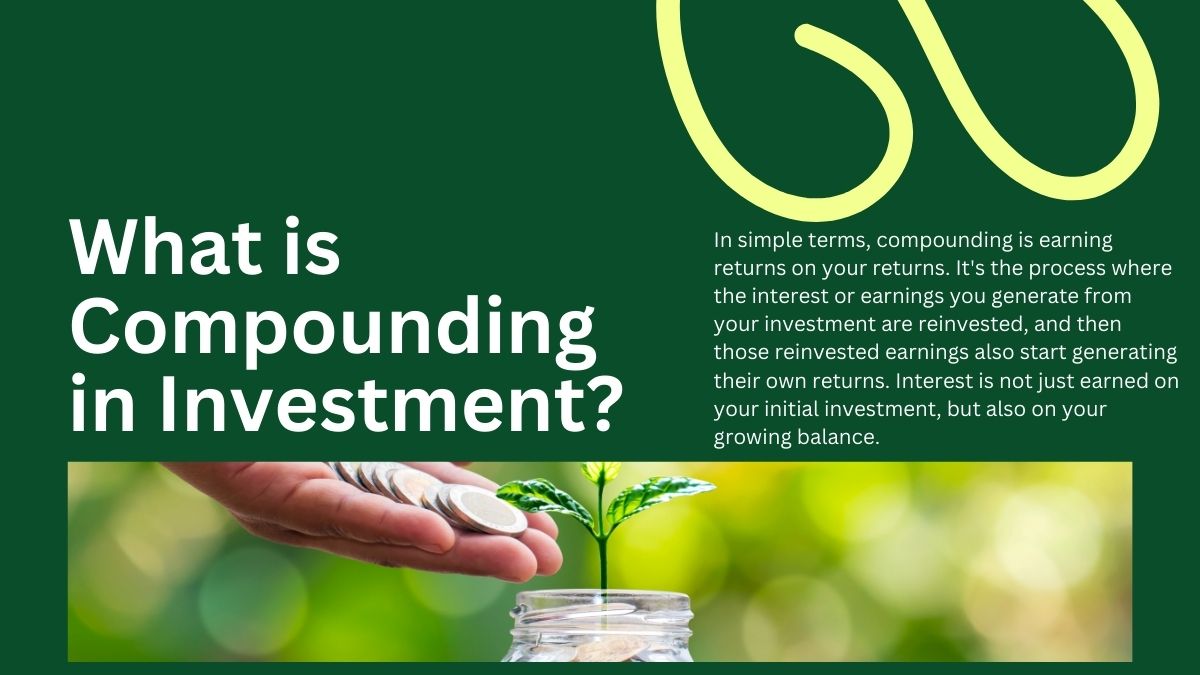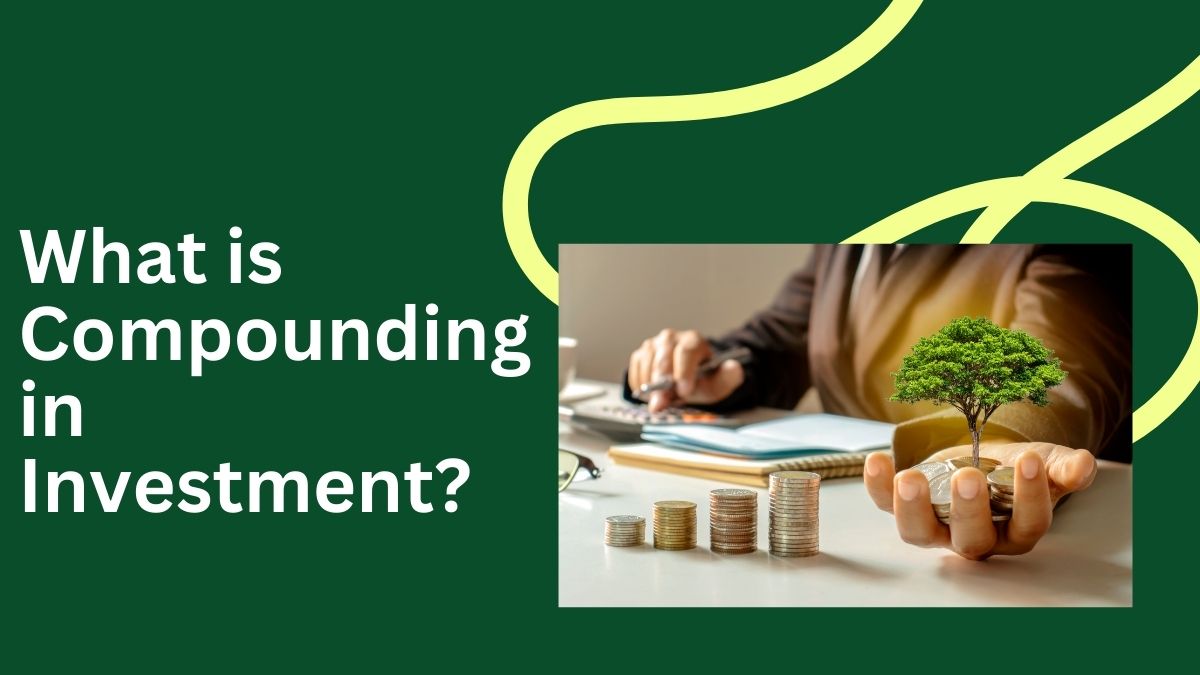A common misconception about investing is that it is confusing and filled with jargon. The most powerful tool for generating wealth is a simple concept: compounding. Consider it as the financial equivalent of a snowball rolling downhill, steadily growing larger and more significant with each passing second.
What is Compounding in Investment?

In simple terms, compounding is earning returns on your returns. It’s the process where the interest or earnings you generate from your investment are reinvested, and then those reinvested earnings also start generating their own returns. Interest is not just earned on your initial investment, but also on your growing balance.
Imagine you invest $1,000 in a savings account that earns 5% interest annually. After the first year, you’ll have $1,050. Now, instead of withdrawing the $50 in interest, you leave it in the account. In the second year, you’ll earn 5% on the new total of $1,050, resulting in $1,102.50. This means you earned $52.50 in the second year, $2.50 more than the first year, just because your balance grew.
The difference might seem insignificant, but it adds up over time.
The Formula for Compounding
The magic of compounding can be quantified using the following formula:
Where:
- A = the future value of the investment/loan, including interest
- P = the principal investment amount (the initial deposit or loan amount)
- r = the annual interest rate (as a decimal)
- n = the number of times that interest is compounded per year
- t = the number of years the money is invested or borrowed for
Let’s break it down:
- Principal (P): This is the initial amount of money you invest.
- Interest Rate (r): This is the percentage return you earn on your investment.
- Compounding Frequency (n): This refers to how often the interest is added to your principal. The more frequently interest is compounded, the faster your money grows.
- Time (t): The longer your money is invested, the more time it has to compound.
Why Compounding Matters?
Compounding is a powerful tool for building wealth because it accelerates the growth of your investments. Here’s why it’s so important:
- Exponential Growth: Compounding generates exponential growth, unlike simple interest, which only earns returns on the principal. This means your wealth increases at an accelerating rate over time.
- Long-Term Impact: The longer you allow your investments to compound, the greater the impact will be. The difference in interest rates or compounding frequency over decades can be substantial even with small differences in interest rates.
- Passive Wealth Building: Compounding allows your money to work for you, even while you sleep. It’s a form of passive income that can help you achieve your financial goals without requiring constant effort.
- Combating Inflation: You lose purchasing power as inflation erodes your money over time. By compounding returns, you can outpace rising costs and stay ahead of inflation.
Read this: How Inflation Affects Your Investments: What You Need to Know
Practical Examples of Compounding
- Savings Accounts: The interest earned on savings accounts is compounded every day. Though the rates might be low, the effect still contributes to growth over time.
- Certificates of Deposit (CDs): CDs offer fixed interest rates and often compound interest, providing a predictable way to grow your savings.
- Stocks and Dividends: When you reinvest dividends from stocks, you purchase more shares, which in turn generate more dividends. This creates a powerful compounding effect.
- Retirement Accounts (401(k)s, IRAs): The purpose of retirement accounts is to take advantage of compounding over an extended period of time. Investing regularly and compounding growth can result in significant wealth accumulation.
- Real Estate: Rental income, when reinvested into more properties, can create a compounding effect as the value of the properties also increases.
Tips for Maximizing Compounding
- Start Early: The earlier you invest, the longer your money has to compound. It is possible to grow even small amounts of money over the long run by investing them early.
- Invest Regularly: Consistent contributions to your investment accounts allow you to take full advantage of compounding. Even small, regular investments can make a big difference.
- Reinvest Dividends and Earnings: Always reinvest any dividends or earnings you receive. This will allow your investments to grow faster.
- Choose Investments with Higher Returns: While higher returns often come with higher risk, they also accelerate the compounding process.
- Minimize Fees: Investment fees can eat into your returns and reduce the power of compounding. Choose low-cost investment options whenever possible.
- Stay Patient: Compounding is a long-term strategy. Don’t get discouraged by short-term market fluctuations. Stay focused on your long-term goals and allow your investments to compound over time.
- Understand Compounding frequency: If you have the option, investments that compound daily, or monthly, will grow faster than those that compound annually.
The Downside of Compounding: Debt
It’s important to remember that compounding works both ways. Just as it can grow your wealth, it can also increase your debt. For example, credit card debt compounds daily, accumulating interest rapidly. The key to managing debt effectively is to pay it down as fast as possible.
Also Read:
- 11 Tips to Repay Personal Loans Faster: Your Roadmap to Financial Freedom
- 5 Questions to Ask Before Taking a Personal Loan
Conclusion
Your financial goals can be achieved through compounding, a fundamental investment principle. By understanding how it works and taking advantage of its power, you can unlock the potential for significant wealth growth. Start early, invest regularly, and be patient. The magic of compounding will work its wonders over time. The most valuable resource you have is time.

